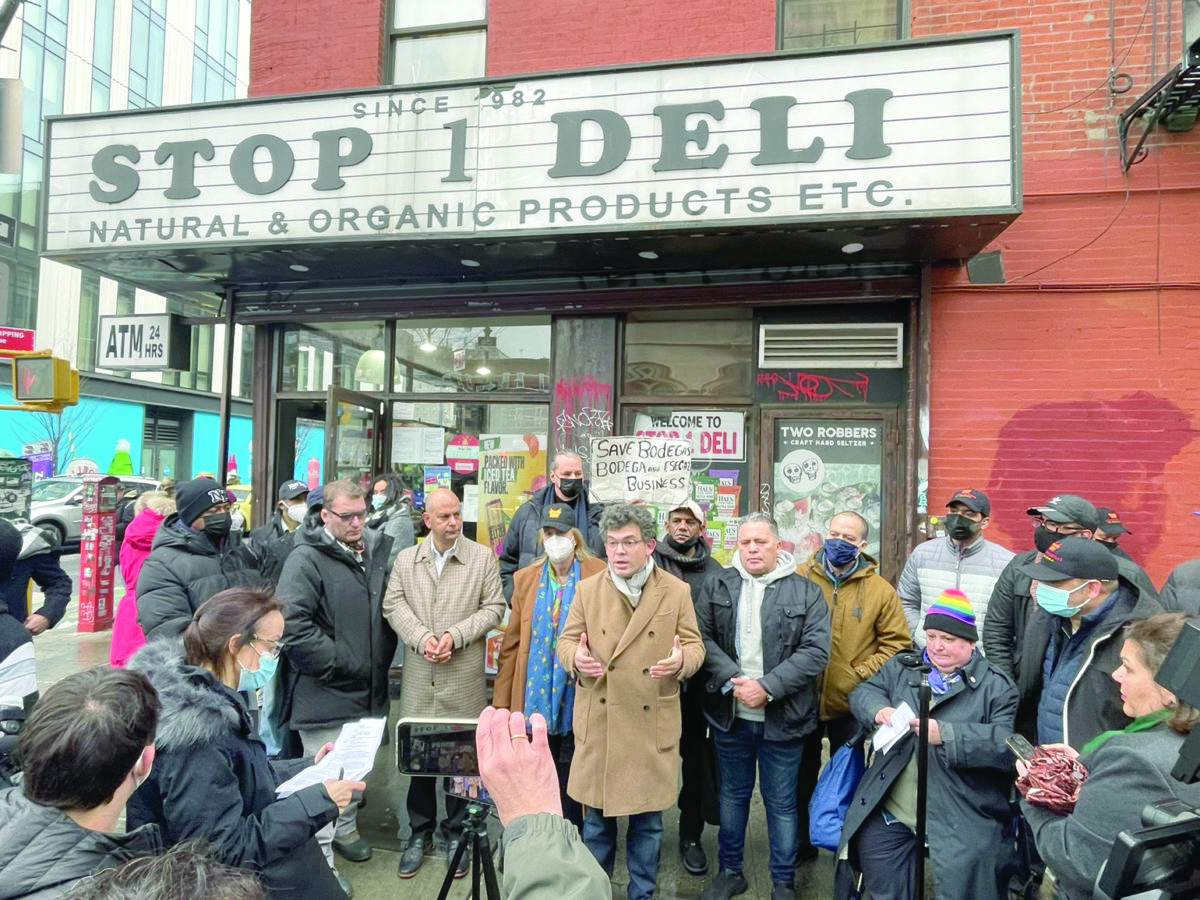Black-owned bookshop provides more than just good books

By: Matthew Fischetti
Darlene Okpo always had the idea of opening up a bookstore in the back of her head since her early 20s, but it wasn’t until she became a teacher that she realized she needed to open a store that focused on Black authors.
“Instead of me trying to fight the system and change the curriculum to include multicultural education, I felt I needed to open up a black-owned bookstore that focused on black authors, writers and books that talk about BIPOC people,” Okpo told the Brooklyn Downtown Star.
Okpo says that the catalyst to open the store stemmed from her own students not feeling connected to the texts they were reading in class. She talked to a booksmart student in her class who was falling behind on a writing assignment, who admitted that she was having trouble connecting to the assigned texts that didn’t feature Black girls like her. After Opko gave her a copy of “Mondays Not Coming” by Tiffany Jackson, other students of color started soliciting recommendations.
Two years later, in May 2020, Okpo opened her 480-square-foot shop on Water Street. Okpo named the store “Adanne” after her mother’s middle name to honor the support she gave Okpo to be herself and pursue her goals.
“When we look at the history of Black-owned bookstores, we went from 300 to around 120. And people don’t know, when it comes to the history, that Black-owned bookstores have been such a staple in the community because of what we experienced in just the United States alone,” Opko said about her decision to focus on BIPOC writers. “It’s not to exclude any other ethnic group. It’s just to say that this is a store where you can get all the knowledge that, for so many years, has been banned.”
While The Strand is one of her favorite bookstores, she didn’t want Adanne to feel overwhelming with the sheer volume of inventory. Or for her customers to feel rushed to simply purchase books and get out. Instead, Okpo opted to keep a smaller inventory and use the rest of the store to create a welcoming environment.
Inside the store, you’ll find couches, floor cushions; Black Panther posters and stickers of James Baldwin; racks for store merch; white shelves that pop off the bright orange and red color themes; and plenty of African-inspired artwork. Definitely not like a Barnes and Noble or even your average hole-in-the-wall bookstore.
“I wanted it to feel like a home. As if you’re walking into your grandmother or your auntie’s or your grandfather’s living room, and you’re just receiving all of this knowledge from books,” Okpo said.

One of the favorite programs that Okpo has held at the store has been the “Black book swaps” – days where people can come into the store and swap out three of their books for others and talk to fellow readers about what they enjoyed or what they didn’t about the books. Okpo has also hosted poetry reading sessions and talks where, usually self-published, writers can talk about their projects and field questions from readers.
“It’s not about just signing the book. The author will go over why they wrote the book, their purpose and what they want people to take out of it. It’s great because I think when it comes to local bookstores, we want to support local writers because it’s very hard to do – putting out a wonderful body of work and then being able to have a community that supports you,” Okpo said.
Starting this Friday, Adanne will be hosting “sister sessions” where women can come into the store to participate in a meditation session, do some journal writing, and have a topic discussion. She hopes for it to be an outlet for women to discuss what they’re going through and be able to heal from it.
Opko told the Brooklyn Downtown Star that she hopes to expand into a bigger space within the next one to three years and turn the store into a center for writers so that they can do research, attend writing workshops and be a true community space.
In the meantime, Okpo is looking to set up a work-study program to help get high school students job experience. She specifically wants to participate in the mayor’s new program that will help employ 100,000 New York teens over the summer, with tailored programs meant to help at-risk youth.

“That was my original mission, it took time for me to do it because I needed to set the store up and make sure that people understood what Adanne was about. It’s not just a bookstore. It’s definitely a community for people of color, families, friends, activists, and everyone to just come in, learn, share, and contribute to what we need to do in this world.”




